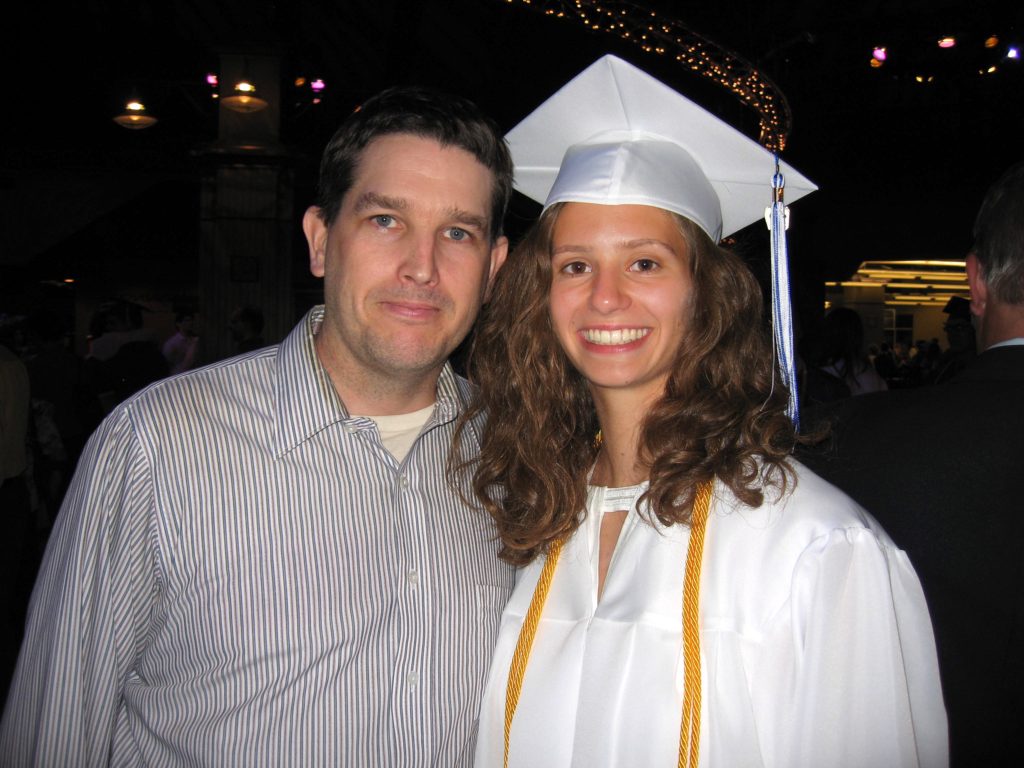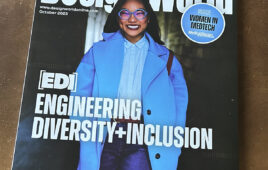 Lauren West
Lauren West
Mechanical Engineer
M3 Design Inc.
In the world of product development, there are engineering challenges to be faced every day. But that’s what drives Lauren West — finding elegant solutions to complex problems daily. She works as a mechanical engineer for Austin-based M3 Design, a product design consulting firm. She focused on projects that require the design of novel mechanisms, the integration of electronics and code, multidisciplinary collaboration, and continuous learning and mastery of engineering topics.
West studied mechanical engineer at the Massachusetts Institute of Technology, where she first discovered the world of product design. Since that time, she has designed products from the ordinary to the obscure — everyday kitchen appliances to medical devices.
“I enjoy this variety in my work and am always looking forward to the next design challenge that comes my way,” she said.
However, West said, the challenges are not always glamorous or exciting. She explained how one time, a client’s product was leaking in the field. Customers were complaining, and they needed a solution quickly.
“There were multiple potential leak sites on the device and they were difficult to isolate,” she said. “With too many variables in play, I had to develop a game plan in which I could modify the product to isolate and test each potential leak site. This proved to be an enormous task as the testing would take weeks.”
Daunted by the sheer manual labor about to ensue, it became a challenge of willpower and motivation for West.
“Luckily, I found a way to work smarter,” she said. “I quickly developed a simple, automated test bed that greatly reduced variability, physical fatigue, and increased reliability. This allowed me to obtain results I could trust and rule out variables quickly. The testing still took a while, but once I identified the source of the leak, I was able to make design modifications to mitigate it completely.”

West and Cherry.
The path to engineering
A career in engineering wasn’t something West grew up dreaming about. In fact, she said it wasn’t even on her radar. She didn’t know any practicing engineers and famous ones weren’t really brought to her attention. But there were influential non-engineers who shaped the decision to become an engineer.
“Besides family, the main influence was my high school physics teacher, Mr. Cherry,” West said. “He brought a certain excitement and intrigue to the classroom that made learning fun. When college application time came around, he was influential in encouraging me to apply to engineering programs. Beyond high school, there were also numerous peers, professors, and professionals who inspired me with their enthusiasm for engineering.”
“Truth be told, I didn’t know much about engineering when I decided to major in it,” West said. “This is what I knew: I enjoyed math and physics, I liked creating things, and my older brother, who I admired, was studying engineering.”
“Despite not knowing what I was getting into, there was a defining moment when I knew I had stumbled upon a perfect career choice. It was the end of my sophomore year and I just finished a hallmark course in the mechanical engineering curriculum. It was a course designed to get students involved with design and fabrication under the guise of a friendly robot competition. Although many of our robots were glorified hunks of sheet metal, there was so much to the class that was new and eye-opening for me. As I reflected on the term, I discovered that there was a way I could make a living combining book knowledge with my love for creative problem solving in a hands-on manner. I may have simply stumbled upon engineering, but I stayed after I discovered what it had to offer.”
West would like to encourage more young women to pursue careers in engineering — she said there needs to be better information about engineering available to them.
“Early exposure to engineering through hands-on workshops, museums, and toys is great. Knowledge of the career and exposure to everyday role models who promote it can make a big difference as well,” she said. “However, it seems like engineering could also use a re-branding. It’s not the stodgy job many people imagine. Engineering is a creative career. We have a hand in designing and creating almost everything around us. This is the narrative that should be told about careers in technology.”
 Being a leader is critical
Being a leader is critical
There are many things that make a good leader, but one attribute that has stood out to West in particular is an ability to make others feel important and valued. Early in her career, she worked at a global corporation. Collaborating with a team of engineers, industrial designers, and marketers around the world was not an easy task, she said.
“Each office brought its own perspective and misunderstandings could happen easily,” West said. “I found that I could successfully lead a team when I had established healthy working relationships with my colleagues. This meant I worked at getting to know each individual. When they presented ideas, I thoughtfully considered their words and tried to demonstrate empathy for their perspectives. I also made a point to provide specific, positive feedback when a job was well done. Positive feedback is so often forgotten. It’s not news, but people want to work for leaders who appreciate their efforts and acknowledge them. Leaders who frequently express disappointment in their team will struggle to find success. This is especially critical to remember when managing young engineers and interns. Your team is going to make mistakes. It’s important to avoid expressing disappointment when that happens. Calm coaching and constructive feedback is the better response because it removes fear from failure.”
 Helping and giving back has its own place
Helping and giving back has its own place
Recently, a coworker pulled West onto a project in a cameo role to help with a specific problem. The challenge was to design the gear train for a medical device. The coworker had dynamometer data for a handful of motor configurations and needed help evaluating the motors and designing the transmission.
“Working around the desired torques and speeds of the device, I was able to build a mathematical model that fed through each motor characterization curve,” she said. “What I found was that the ideal motor had a second, unidentified operating point that was both quieter and more efficient. This discovery launched the project team into bench top testing to confirm my findings. Though my role was brief, I was able to help out my coworkers and coincidentally discover a design solution that was even better than originally expected. It was great to be able to help my coworkers in this way.”
Mentoring young engineers and college students is also something West enjoys. When she lived near MIT, she frequently served as a mentor and teaching assistant for undergraduate mechanical design engineering courses.
“This was a great opportunity because I could share all the things I wish I had known when I was younger. Although I no longer live near my college, I still mentor aspiring product designers and engineers by fielding career path questions and reviewing design portfolios,” she said.
Working today
West explained that it’s not hard to find research and articles outlining the prevalence of the mistreatment of women in the workplace.
“The challenges are very real and are not to be ignored nor minimized. However, I want to highlight that it’s not all misery for women in the workplace,” she said. “I have had the pleasure of working with some truly great and genuine people, male and female, who have encouraged and coached me in my career. While there may be a bad apple here and there, to say that I have had a lot of maltreatment would be an inaccurate depiction of my former and current colleagues. I hope my experience is not so rare. Even though my experiences have been positive on the whole, I cannot claim to have figured out the key to obtaining mutual respect in the workplace. What I do know is that maintaining a positive outlook and establishing boundaries helps.”
And she noted that a person’s career growth is first and foremost their own responsibility — advice she said she’d give her younger self.
“Employers can certainly play a role in providing feedback and opportunities, but it’s not their job to ensure you achieve your full potential. It’s like playing a sport — the coach is there to help and guide you, but you have to put in the work to reach the next level.”
Filed Under: Engineering Diversity & Inclusion




